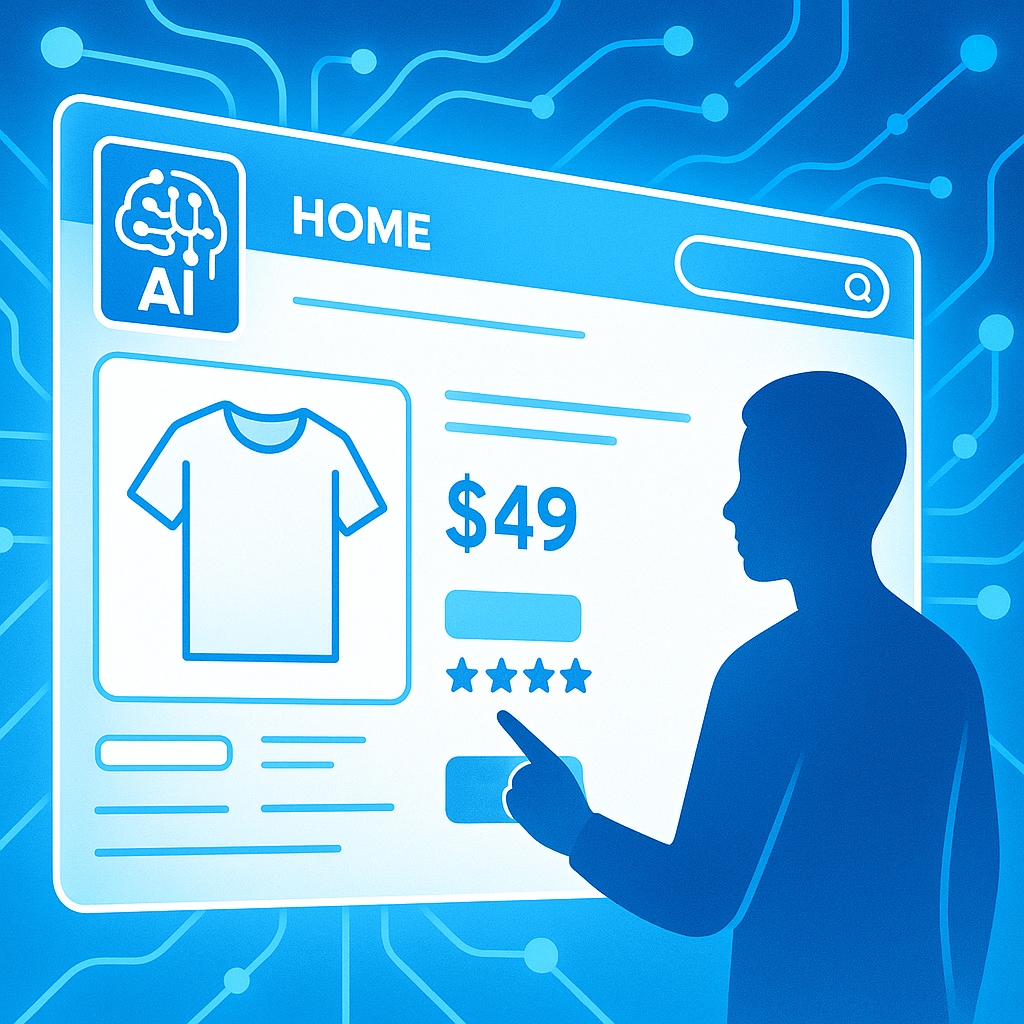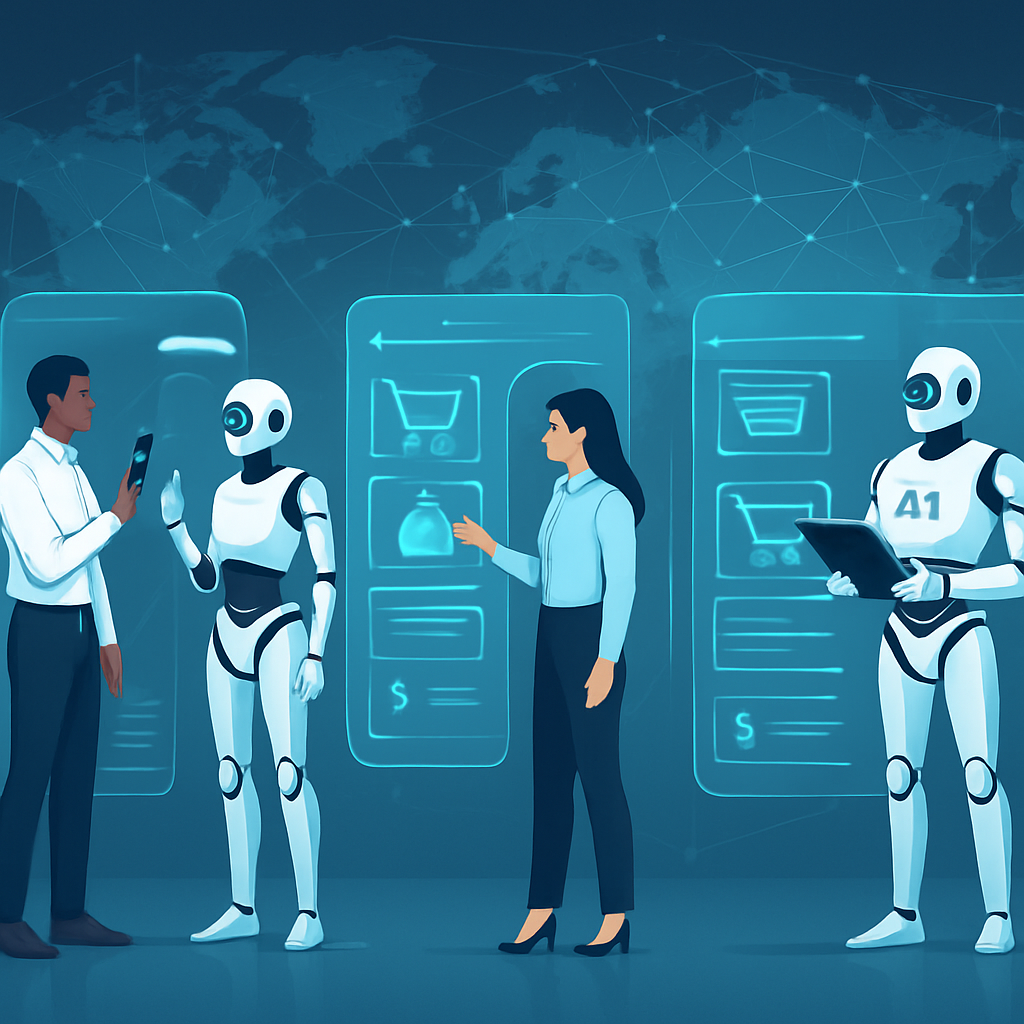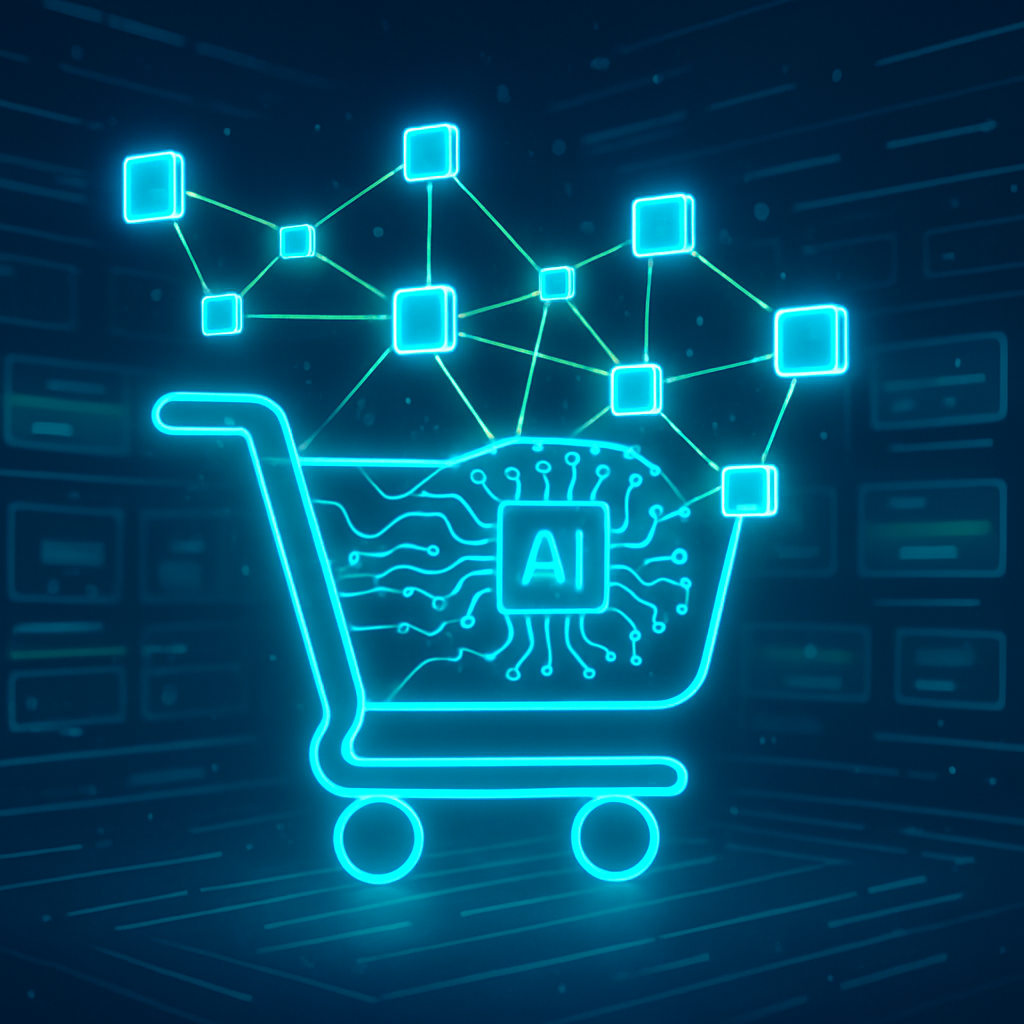
Revolutionizing E-Commerce with AI-Driven Dev Websites
The Dawn of AI in E-Commerce Development
In 2025, the e-commerce landscape is evolving rapidly, with AI-driven dev websites at the forefront of this revolution. Traditional web development approaches are giving way to intelligent systems capable of crafting adaptive, personalized, and highly efficient online stores. This shift is not just about adding features—it's about rethinking how digital commerce platforms are built, maintained, and experienced by customers worldwide.
Understanding AI Systems in Development Websites
AI systems integrated into development websites leverage machine learning, natural language processing, and data analytics to optimize every aspect of the online shopping journey. Unlike static websites, these platforms dynamically adjust content, offers, and layouts based on real-time user behavior and market trends.
For example, an ai-driven e-commerce site can analyze visitor data to customize product recommendations, tailor search results, and even personalize the entire interface for different user segments. This level of personalization enhances engagement and significantly improves conversion rates.
Key AI Capabilities Revolutionizing Development Websites
- Automated Code Generation: AI accelerates the development cycle by generating optimized code snippets based on project requirements, reducing human error and speeding time-to-market.
- Intelligent UX/UI Design: By analyzing user interactions, AI suggests design enhancements to improve navigation and accessibility, resulting in superior user satisfaction.
- Predictive Analytics: AI forecasts customer preferences and inventory needs, enabling proactive decisions that streamline operations.
- Real-Time Personalization: The platform continuously adapts offerings and layouts to the individual shopper, creating a unique experience for each visitor.
Transforming E-Commerce Solutions Services
Businesses offering e-commerce solutions services are rapidly adopting AI-powered dev websites to meet rising consumer expectations for seamless and personalized shopping. These advanced systems enable service providers to deliver platforms that are scalable, intelligent, and flexible.
One prominent example is the integration of conversational AI agents that provide 24/7 customer support directly within the shopping environment. These agents instantly resolve queries, facilitate purchases, and collect feedback, reducing friction and enhancing customer loyalty.
Enhancing Backend Operations with AI
Beyond front-end personalization, AI optimizes backend processes such as inventory management, supply chain logistics, and fraud detection. By automating routine and complex operational tasks, AI-driven solutions free up resources to focus on strategic growth initiatives.
For instance, AI algorithms can predict demand spikes for particular product categories during specific periods, allowing e-commerce companies to adjust supply proactively, minimizing stockouts or overstock scenarios.
Practical Examples of AI-Driven Development Websites in E-Commerce
Smart Fashion Retail Platform
A leading online fashion retailer has embraced AI-driven dev websites to create a platform that evolves with customer tastes. By analyzing social media trends and purchase data, their AI system curates a personalized catalogue for each shopper, boosting engagement and sales.
AI-Enhanced Grocery Delivery Service
An emerging grocery e-commerce service employs AI to streamline product recommendations based on users’ dietary preferences and past orders. Additionally, AI optimizes delivery routes in real-time, ensuring faster and more cost-efficient service.
Challenges and Ethical Considerations
While AI-driven e-commerce development unlocks numerous benefits, it also poses challenges. Data privacy remains paramount; platforms must ensure compliance with global standards like GDPR while maintaining personalized experiences.
Moreover, over-reliance on AI for decision-making can introduce biases if models are not carefully audited. Development teams are increasingly prioritizing transparency and ethical AI practices to build trust with users.
The Future Outlook: Beyond 2025
As AI technologies continue maturing, the role of dev websites in e-commerce will expand into new territories. Combining AI with emerging technologies such as augmented reality (AR) and blockchain will further transform how consumers interact with online marketplaces.
Future platforms might offer immersive shopping adventures tailored uniquely for each user’s preferences backing an intelligent, adaptive ecosystem that anticipates needs before they arise.
Conclusion
AI-driven dev websites are revolutionizing e-commerce solutions by enhancing personalization, operational efficiency, and user experience. By harnessing these intelligent systems, online shopping environments evolve from mere transactional spaces into vibrant, responsive ecosystems that meet the complex demands of modern consumers and businesses alike.
This transformative journey signifies a fundamental shift in how companies approach development, customer relationships, and service delivery in the digital commerce domain.






